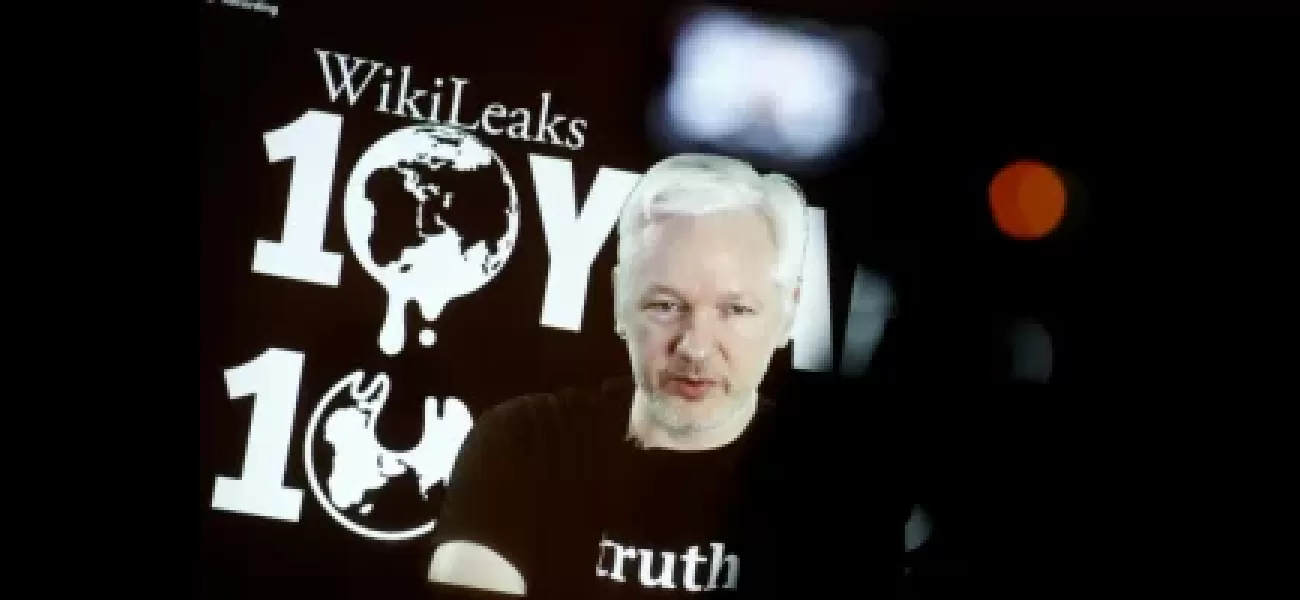Cost of liberty
Julian Assange, creator of WikiLeaks, is now free after a lengthy legal battle, but the terms of his release could have negative implications for freedom of speech and expression. He arrived at a court in Saipan, a Pacific territory, as part of the deal with the US administration.
July 1st 2024.

After a long and tumultuous legal battle spanning 14 years, Julian Assange, the founder of WikiLeaks, has finally been released. However, the circumstances of his release have raised concerns about the state of freedom of speech and expression. The 52-year-old arrived at a federal court in Saipan, a US-administered Pacific territory, after being flown in from his prison in London by a private plane. Accompanying him was former Australian Prime Minister Kevin Rudd, now the ambassador to Washington. Assange pleaded guilty to a charge of obtaining and disclosing national defense information, as part of a settlement agreement with the US Justice Department. He admitted to encouraging his source, former military officer Chelsea Manning, to provide him with classified material from the State Department and Pentagon, which was later made public by WikiLeaks between 2009 and 2011. Despite receiving a five-year sentence, he was able to regain his freedom as it was adjusted for the time he had already spent in prison in the UK. Without hesitation, Assange returned to his family in Sydney, declaring that he would never set foot in the United States again.
The Australian Prime Minister, Anthony Albanese, played a crucial role in lobbying President Joe Biden for Assange's release. For a man who spent 12 years in captivity under the constant threat of extradition to the US, this news was undoubtedly a huge relief. Facing 18 charges, he was at risk of receiving a 175-year prison sentence. After taking refuge in the Ecuadorian embassy in London for seven years, he was finally arrested by British police in 2019 and has been imprisoned ever since.
Assange's actions have been hailed as a significant victory for journalism. His actions embodied the dreams of every investigative journalist, and his publication of State Department diplomatic cables, obtained from a pool of 250,000 documents, was supported by several renowned international newspapers. The release of these documents shed light on crucial aspects of US foreign policy, completely changing the public perception of the country's undercover operations, which were seen as harmful to democratic institutions and other countries.
However, the guilty plea agreement that led to Assange's release has sparked concerns about the state of freedom of speech and expression. He was convicted under the Federal Espionage Act, which is seen as a direct violation of the First Amendment of the US Constitution. While Assange may have made the decision to plead guilty in exchange for his freedom, the fact remains that his actions were not espionage, but rather the exercise of his right to information. It is regrettable that the US chose to charge him with espionage, especially considering the 2007 release of a Pentagon video by WikiLeaks, which revealed war crimes such as the deliberate targeting and killing of civilians, including journalists, in Iraq. The Biden administration's eagerness to resolve this controversial case, especially during an election year, is understandable, but it has serious implications for journalism worldwide.
The whole ordeal has brought into focus the use of espionage charges as a cynical and harmful tactic. The hundreds of thousands of leaked documents about the Afghanistan and Iraq wars and diplomatic cables published by WikiLeaks exposed heinous abuses by the US and other governments, which would have otherwise gone unnoticed. While national security laws are necessary, they should not be used as a means to prevent public scrutiny of government actions. Many similar cases have been seen in India, where citizens have been unjustly imprisoned under flimsy charges.
Perhaps the most alarming aspect of the Espionage Act is that it does not allow for a public interest defense, preventing defendants from discussing the leaked material, their reasons for sharing it, and the importance of making it public. This goes against the US's claim of being a global champion of press freedom and reflects poorly on the administration's actions in Assange's case. Nevertheless, his release is a momentous occasion for journalists all over the world, and we can only hope that this serves as a reminder of the importance of protecting the freedom of speech and expression.
The Australian Prime Minister, Anthony Albanese, played a crucial role in lobbying President Joe Biden for Assange's release. For a man who spent 12 years in captivity under the constant threat of extradition to the US, this news was undoubtedly a huge relief. Facing 18 charges, he was at risk of receiving a 175-year prison sentence. After taking refuge in the Ecuadorian embassy in London for seven years, he was finally arrested by British police in 2019 and has been imprisoned ever since.
Assange's actions have been hailed as a significant victory for journalism. His actions embodied the dreams of every investigative journalist, and his publication of State Department diplomatic cables, obtained from a pool of 250,000 documents, was supported by several renowned international newspapers. The release of these documents shed light on crucial aspects of US foreign policy, completely changing the public perception of the country's undercover operations, which were seen as harmful to democratic institutions and other countries.
However, the guilty plea agreement that led to Assange's release has sparked concerns about the state of freedom of speech and expression. He was convicted under the Federal Espionage Act, which is seen as a direct violation of the First Amendment of the US Constitution. While Assange may have made the decision to plead guilty in exchange for his freedom, the fact remains that his actions were not espionage, but rather the exercise of his right to information. It is regrettable that the US chose to charge him with espionage, especially considering the 2007 release of a Pentagon video by WikiLeaks, which revealed war crimes such as the deliberate targeting and killing of civilians, including journalists, in Iraq. The Biden administration's eagerness to resolve this controversial case, especially during an election year, is understandable, but it has serious implications for journalism worldwide.
The whole ordeal has brought into focus the use of espionage charges as a cynical and harmful tactic. The hundreds of thousands of leaked documents about the Afghanistan and Iraq wars and diplomatic cables published by WikiLeaks exposed heinous abuses by the US and other governments, which would have otherwise gone unnoticed. While national security laws are necessary, they should not be used as a means to prevent public scrutiny of government actions. Many similar cases have been seen in India, where citizens have been unjustly imprisoned under flimsy charges.
Perhaps the most alarming aspect of the Espionage Act is that it does not allow for a public interest defense, preventing defendants from discussing the leaked material, their reasons for sharing it, and the importance of making it public. This goes against the US's claim of being a global champion of press freedom and reflects poorly on the administration's actions in Assange's case. Nevertheless, his release is a momentous occasion for journalists all over the world, and we can only hope that this serves as a reminder of the importance of protecting the freedom of speech and expression.
[This article has been trending online recently and has been generated with AI. Your feed is customized.]
[Generative AI is experimental.]
0
0
Submit Comment





